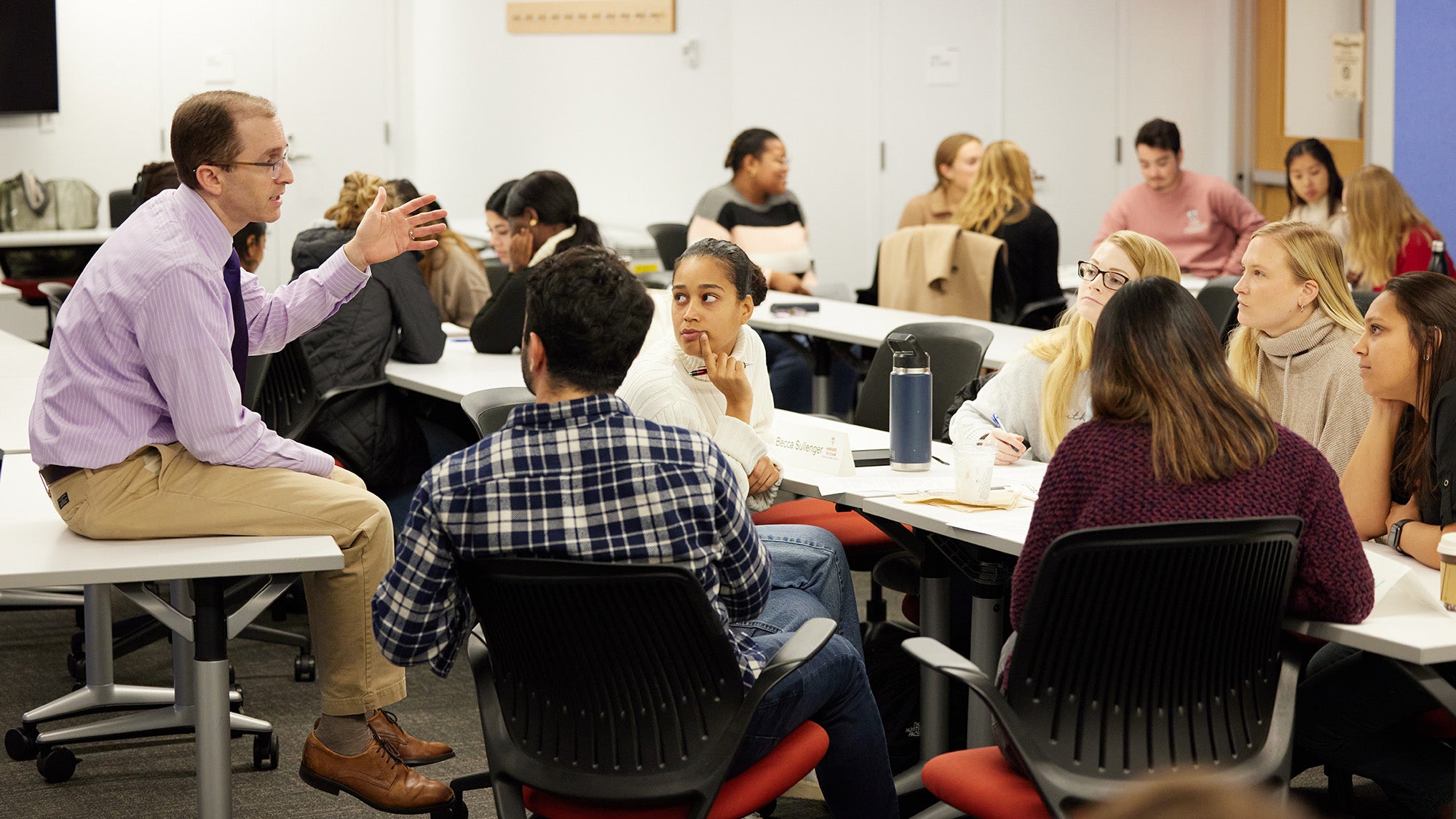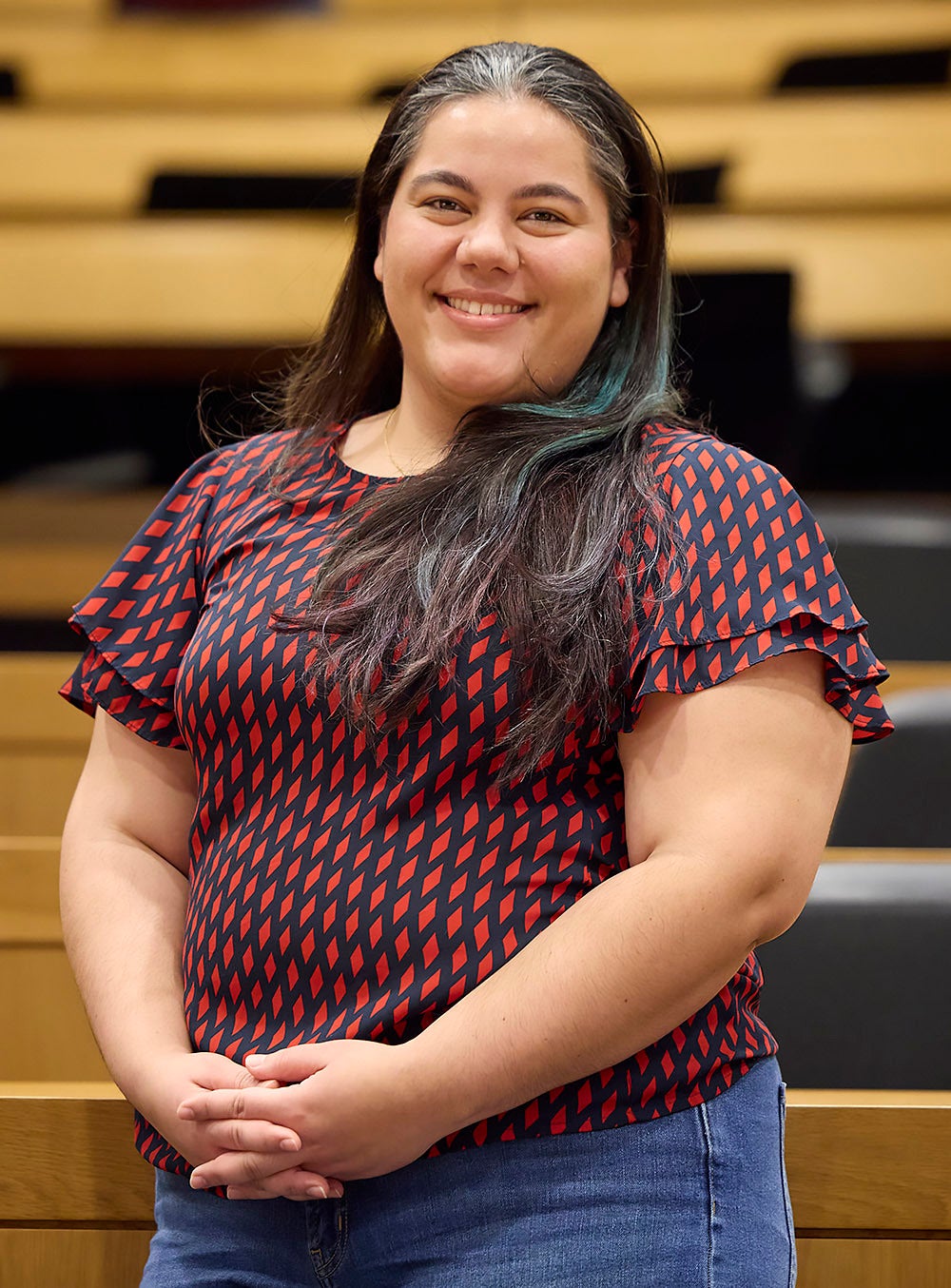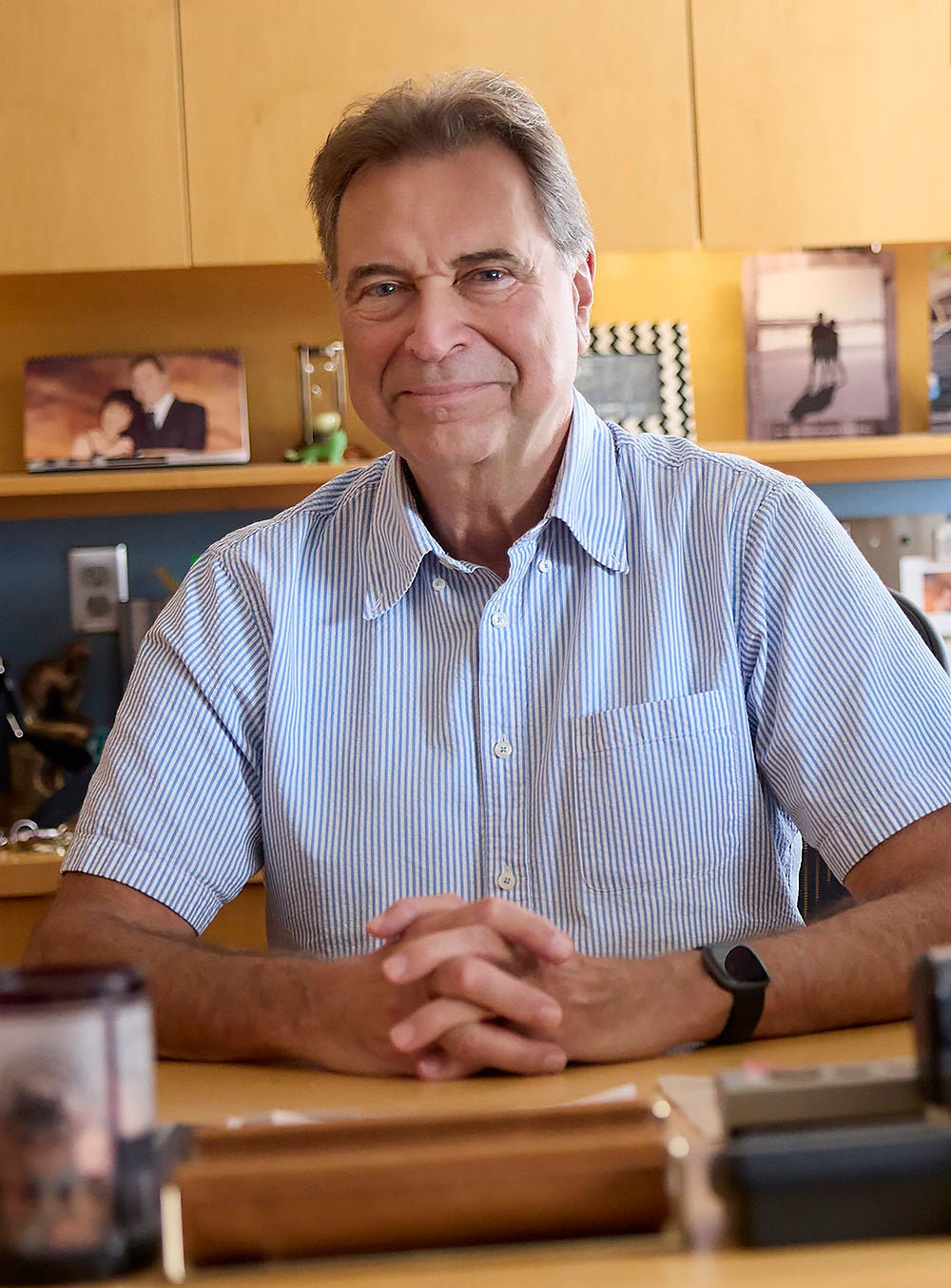Faculty share tips on successful classroom strategies

November peer-to-peer workshop focuses on fostering engaging discussions
More than 30 faculty members at Harvard T.H. Chan School of Public Health came together on Nov. 13 to share teaching practices that work to foster open, respectful, and intellectually engaging discussions in the classroom.
The ”Facilitating Robust and Constructive Conversations” workshop was part of the faculty peer workshop series, now in its fifth year. It was the second of three workshops being offered this fall. An Oct. 9 workshop focused on how to create a positive learning culture; a workshop scheduled for Dec. 4 will cover Generative AI in teaching and learning. The goals of the workshops are to foster a sense of community and to showcase effective teaching and learning practices across the School.
The Nov. 13 workshop included presentations from three faculty members, including Jacqueline Bhabha, professor of the practice of health and human rights, John McDonough, professor of the practice of public health, and Michaela Kerrissey, associate professor of management.
Understanding divergent views
Bhabha teaches a course about human rights dilemmas in the area of child protection that explores how to move towards norm change in a world in which many communities have strongly held beliefs that are in sharp contrast to “accepted wisdom” on how children should be treated.
Child labor is one such issue. Bhabha described a case from Ecuador—which she worked on with colleagues at the Harvard Kennedy School and has used in her classes—that helps facilitate discussion on “polar opposite” points of view about child labor. In the case, representatives from a school in Ecuador called the Working Boys’ Center—including school leaders, parents, and children—talk about why they think it is important for students to work during school hours. They say it’s not a violation of the students’ rights, that it’s instructive, and that it’s a constructive way of rearing children. On the other side, a government education minister from Ecuador and a representative from the United Nation’s Committee on the Rights of the Child talk about how essential it is to have all children in school and how damaging it is for them to have to study at night or on weekends because they’re working during the day.
“The people from the school think that the human rights people are kind of talking down to them, and the human rights people think that the Working Boys’ Center are kind of stuck in the 19th century,” Bhabha said. She said that her students generally start her class thinking that child labor is terrible, but by the end the class, their views about the issue are much more nuanced. “That’s an example of how you can use a well-done case, with smart, compelling advocates for different points of view, to really have a [robust] discussion,” Bhabha said.
Highlighting competing values
As an example of how to approach potentially contentious classroom conversations, McDonough discussed the national debate over Medicaid work requirements. He noted that people opposed to the work requirements typically cite evidence suggesting that they are ineffective. They often point to 2019 research by Harvard Chan School’s Ben Sommers, which found that in the six months after Arkansas implemented Medicaid work requirements in June 2018, roughly 18,000 adults lost insurance and there was no change in employment in the state. The study also found that most people lost coverage not because they didn’t meet the work requirement—nearly 95% either met it or qualified for an exemption—“but because they couldn’t navigate the administrative and website hurdles,” McDonough said.
But to people on the other side of the issue, the evidence may not matter, McDonough said. “Most of the policy process involves debates around values, masquerading as debates around studies, numbers, data, and facts,” he said, noting that those in favor of work requirements may feel strongly that everyone should have a job, that nobody should get a handout, or that health care should not be a right. Given these strong beliefs, McDonough suggested steering classroom discussions toward those divergent values instead of studies or data points. “When you do that, I find that people feel much freer to express themselves … and you then can have a more fruitful conversation,” he said.
Fostering open dialogue
At the beginning of her courses, Kerrissey preps students for having difficult discussions by presenting a “low-stakes” case about an employee problem at a brewery—a topic that students are unlikely to find contentious, she said. After a discussion, Kerrissey asks the students to reflect on the nature of their conversation and poses the question, “What kinds of norms ought we to set as a classroom about how to have this kind of debate, especially as we start to talk about harder things?”
Kerrissey encourages open discussion by using the Chatham House Rule, under which students agree that, outside of class, they will never attribute anything said in class to the particular person who said it.
Learning from peers
Jennifer Betancourt, director for educational policy, said that over the past few years, the faculty peer workshop series has brought a diverse range of topics to faculty. “Most importantly,” she added, “it has been a means of building community among faculty and highlighting various teaching and learning best practices around the School.”


